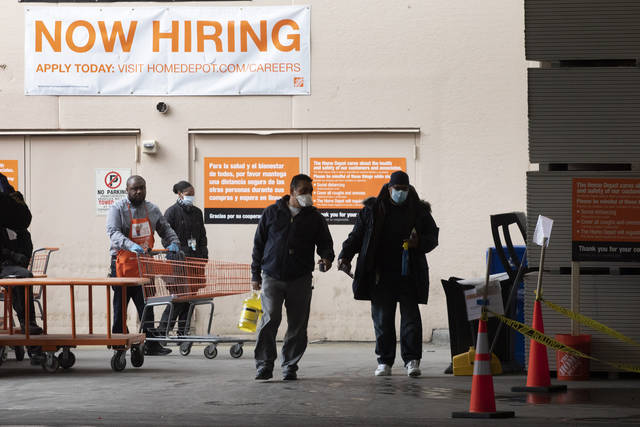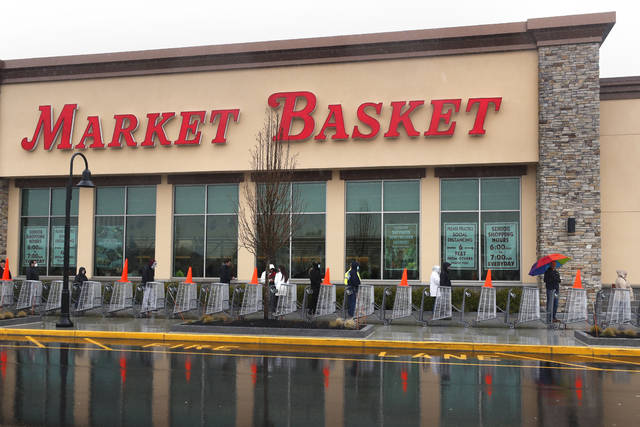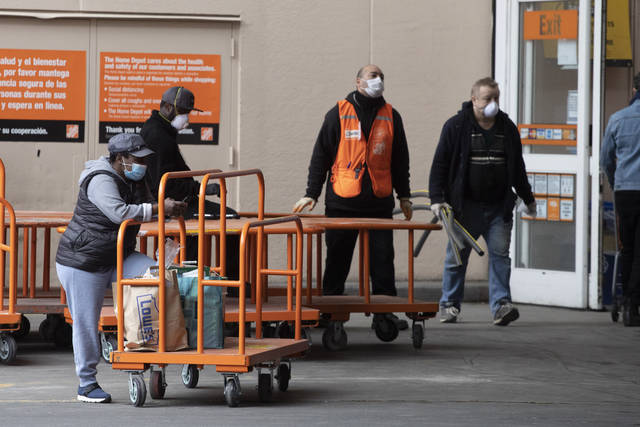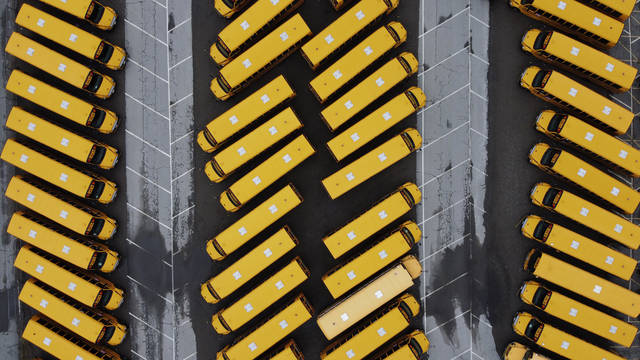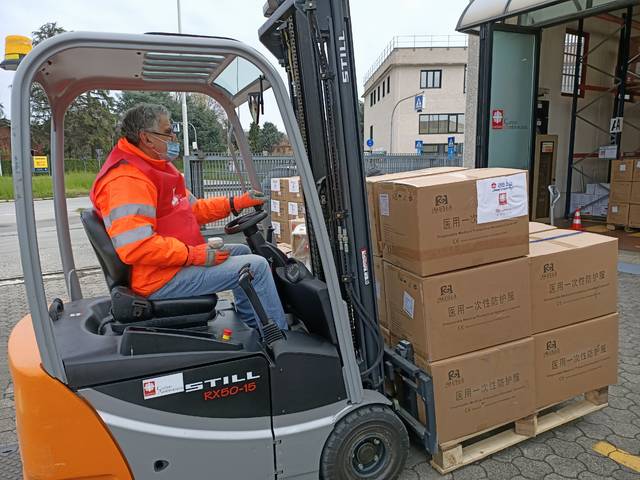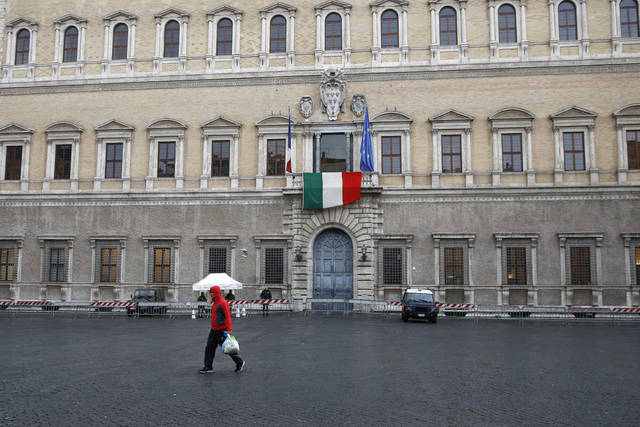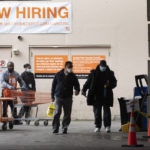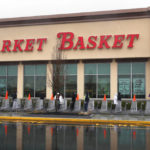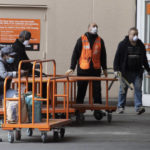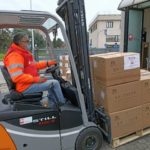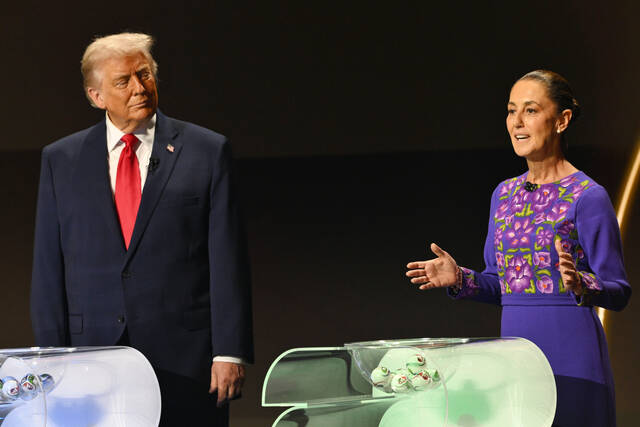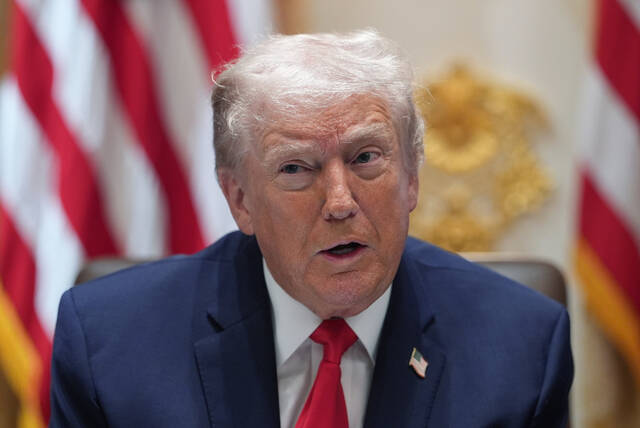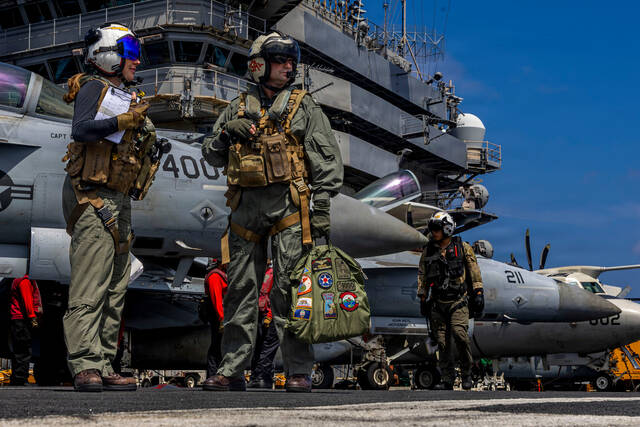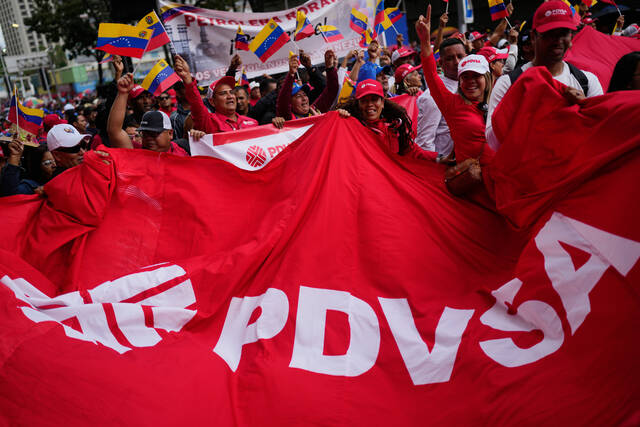The outbreak of the coronavirus has dealt a shock to the global economy with unprecedented speed. Following are developments on Friday related to the global economy, the work place and the spread of the virus.
————————————
COSTS MOUNT: The pandemic will cost the global economy as much as $4.1 trillion, or nearly 5% of all economic activity, according to new estimates from the Asian Development Bank.
The head of the International Monetary Fund said the recession sparked by the coronavirus pandemic is “way worse” than the 2008 global recession. At a press briefing in Geneva on Friday, IMF managing director Kristalina Georgieva described the situation as “a crisis like no other.”
AIRLINES: Delta Air Lines, American Airlines, United Airlines, Southwest and JetBlue said they applied Friday for their share of $25 billion in federal grants designed to cover airline payrolls for the next six months. None disclosed the amount they are seeking.
The grant money was part of $2.2 trillion relief bill approved last week. Delta’s CEO says his airline is burning more than $60 million cash per day, and United’s president puts it at $100 million a day. Airline revenue has cratered during the coronavirus outbreak. Delta carried 38,000 passengers last Saturday. On a normal Saturday in late March it flies 600,000.
The number of travelers screened Thursday at airports nationwide was 124,000, a 95% drop from the same day last year.
And the global airline industry passed a milestone Friday: Half of all passenger jets are now grounded as airlines cut flights sharply. Aviation-data firm Cirium said that with another 530 parked since Thursday, there are now 12,635 jets in service and 13,655 grounded. The number of commercial flights is down 75%, according to tracking service
The Transportation Department, meanwhile, said it is getting more complaints from consumers who say airlines are giving travel vouchers instead of refunds after canceling flights. The department says vouchers aren’t easy to use because airlines are cutting so many flights due to the coronavirus outbreak. Airlines can offer vouchers — and usually do, even in normal times — but the Transportation Department said it is reminding carriers of a longstanding requirement to issue prompt refunds to passengers who want them.
SMALL BUSINESS: More than $875 million in loan applications had been processed through the new small business loan program, Treasury Secretary Steven Mnuchin said via Twitter, “almost all from community banks!” Mnuchin said in that tweet that big banks were also taking applications and would be submitting them shortly. However, there were signs that the program is off to a rough start.
CROWD CONTROL: Walmart still wants customers, just fewer of them at a time. The nation’s largest retailer said it will now allow no more than five customers for each 1,000 square feet at a given time, roughly about 20% of the average store’s capacity. To oversee the restriction, workers will mark a queue at a single-entry door, and direct arriving customers there, where they’ll be admitted one by one. Walmart joins Target and others in trying to limit the number of customers in the store to curb the spread of the coronavirus.
HEAVY INDUSTRY: Toyota is halting production at five of its 18 plants in Japan as sales evaporate. The stoppage will last three days for most of the plants, but one plant will close until mid-April.
The affected plants produce vehicles for export, including Lexus luxury models and the Prius hybrid. Other Japanese automakers, such as Honda Motor Co., have also suspended production.
The U.S. auto industry is completely shut down.
CORONA SIDELINED BY CORONAVIRUS: The coronavirus pandemic is even closing the taps on Corona beer — along with most other brews across Mexico.
Major breweries announced Friday they are suspending operations in response to government orders for non-essential businesses to keep their workers at home.
Grupo Modelo, maker of Corona among other popular brands, said it will suspend its operations at plants around the country by Sunday. The company pointed out in a statement that thousands of farmers depend on it buying their grain. It said it has a plan that would allow it to continue production with 75% of its workforce at home if the government decides to allow it to continue operating.
Some Mexican states have also imposed dry laws that restrict the sale of alcohol during the health crisis.
MARKETS: U.S. stocks fell Friday, leaving the S&P 500 down 26.5% since its record set in February.
The losses came after the government reported that U.S. employers cut 701,000 jobs in March, the monthly decline in nearly a decade. Because of the timing of the spread of COVID-19, the March report did not capture the extend of the damage. Economists are warning policy makers to brace for worse.
ROUNDING IT OUT: The U.S. typically has a unique response to crisis, and the coronavirus is no different.
Firearm sales spiked 85% last month compared with the March last year, according an analysis of the FBI’s National Instant Criminal Background Check System by Small Arms Analytics and Forecasting.
The laws of supply and demand also apply to arming up, of course, and the cost of adding guns the the shopping list will cost you.
“Much of the industry’s inventory will have been depleted, so that we anticipate that weapons and ammunition prices increased as well,” said Jurgen Brauer, SAAF’s chief economist.
Data on prices will be released soon.


